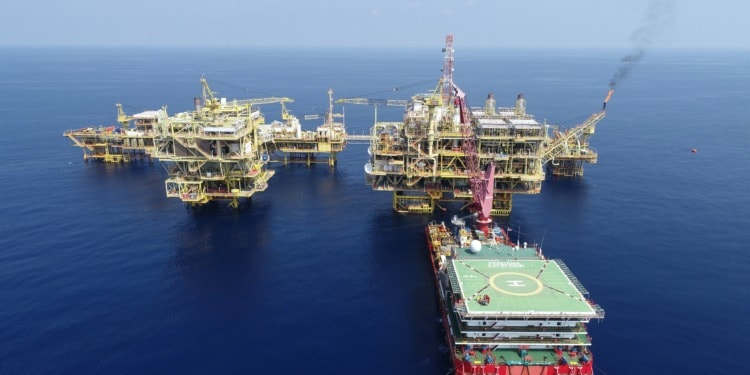In the past seven months, commitments to end international public finance for fossil fuels have proliferated. At the 2022 UN Climate Change Conference (COP 26), 39 countries and public finance institutions signed the Glasgow Statement on International Public Support for the Clean Energy Transition. In the Glasgow Statement, signatories committed to ending new direct overseas support for fossil fuels and fully prioritizing their international public finance for a clean and just energy transition by the end of 2022.
Then, in May 2022, G7 climate, energy, and environment ministers agreed on a nearly identical commitment, bringing Japan into the group of countries committed to ending international public finance for fossil fuels and shifting it to clean energy.
But developments at the G7 leaders meeting in late June threaten to make it harder for those commitments to prove effective in practice. In their communiqué, the G7 leaders repeated their pledge to end new direct international public support for “unabated” fossil fuels but extended the scope of exceptions to allow for continued investment in the gas sector.
This came in response to the war in Ukraine, which has highlighted the dangers of dependence on overseas oil and gas. Stressing the need to phase out reliance on Russian energy supplies, G7 leaders opened the door for “temporary response” investments in gas.
Despite the G7 leaders’ statement, the Glasgow Statement still stands. And its potential is vast. If fully implemented, the Statement could shift USD 28 billion per year (USD 39 billion when including Japan) in international public finance from fossil fuels to clean energy, with a majority contribution coming from G7 members. More broadly, acting on the statement could leverage investments in clean energy from other sources of public and private finance and begin to establish a new norm for energy investment.
So how can signatories get back on track to meet their commitments by the 2022 deadline?
Improve Exclusion Policies for Fossil Fuels
Six months on from the Glasgow Statement, most signatories have yet to put in place fossil fuel exclusion policies that match the Statement’s ambition. Export credit agencies lag particularly far behind. This is concerning, given that they provided more than 80% of the signatories’ international public finance for fossil fuels between 2018 and 2020.
Gas is a key area for improvement. Many signatories still allow full or partial support for gas exploration and production abroad, as well as for downstream end uses. Countries and institutions must close these loopholes if they are to fulfill their commitments.
The problem with gas investments, either at home or abroad, is threefold. First, very tight carbon budgets remain for limiting warming to the 1.5ºC Paris Agreement target. Under Intergovernmental Panel on Climate Change pathways, no new oil and gas fields can be developed, and no new exploration can be carried out if warming is to be limited to 1.5ºC.
Related Articles: Are the G7 Countries Sabotaging Their Own Climate Efforts? | COP26: Agreement Satisfies Few, but Is Seen As Only Way Forward
Second, gas is not needed to further economic development or improve energy access since clean, cost-competitive alternatives for most of its end uses already exist. Distributed renewables are also much better than gas for providing energy access to rural and remote households.
Third, gas investments abroad pose significant socio-economic risks. Further investment in long-lived gas infrastructure in low- and middle-income countries would undermine development objectives, putting these countries in danger of being stuck with stranded assets, vulnerable to price spikes, and left behind in the global energy transition.
Even “temporary” overseas investments in gas, as proposed by the G7, do not align with the Glasgow Statement’s ambition. Nor are they an effective way to tackle the short-term energy supply shortage.
Support Clean Energy Growth with International Public Finance
Right now, most high-income Glasgow Statement signatories lack publicly available, concrete targets or strategies to scale up international clean energy and energy efficiency financing. Yet investments in clean energy must more than triple by 2026 if the world is to stay below 1.5ºC.
Most of these investments are needed in middle- and low-income countries to support development and energy access needs. But between 2017 and 2019, middle- and low-income countries received only a quarter as much international public finance for wind and solar as they received for gas.
In the context of the war in Ukraine, there is an overwhelming need to prioritize international public finance for energy efficiency and clean energy solutions that can accelerate the transition to a more peaceful, sustainable, and secure future for all.
Seize the Six-Month Window of Opportunity
Glasgow Statement signatories now have a critical window of opportunity to live up to their commitments. To do so, by the end of 2022, they must develop and adopt updated policies for ending international public finance for fossil fuels, including gas, and advancing a clean and just energy transition.
Fortunately, signatories have strong existing policy examples to draw on, including those of the United Kingdom, Denmark, the FMO development bank in the Netherlands, and the European Investment Bank, which enforce a nearly full ban on new support for fossil fuel projects across the entire value chain, including unabated gas-fired power plants.
Countries and institutions can also use the statement as an opportunity to shift the wider international public finance landscape. For example, because many signatories are shareholders at multilateral development banks, they can wield their voices and votes in these forums against new fossil fuel financing.
And those already signed on can work together to expand the Glasgow Statement’s signatory list, which so far does not include large fossil fuel financiers such as South Korea, China, and several multilateral development banks. COP 27 in November is a significant moment when updated policies — and potentially an expanded membership — could be announced.
The opportunity presented by the Glasgow Statement remains pressing and salient, notwithstanding the G7 leaders’ communiqué. Successful implementation could catalyze a breakthrough in the collective effort to align financial flows with Paris objectives. It is clear what signatories must do. Now is the time for action.
Editor’s Note: The opinions expressed here by the authors are their own, not those of Impakter.com — In the Featured Photo: Offshore Drilling Rig on Body of Water. Featured Photo Credit: Zukiman Mohamad.













